| Listing 1 - 10 of 11 | << page >> |
Sort by
|
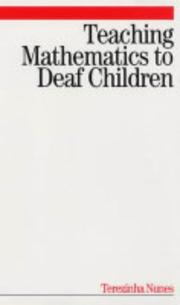
ISBN: 186156340X Year: 2004 Publisher: London : Whurr Publishers,
Abstract | Keywords | Export | Availability | Bookmark
 Loading...
Loading...Choose an application
- Reference Manager
- EndNote
- RefWorks (Direct export to RefWorks)
Mathematics --- Deaf children --- Mathématiques --- Enfants sourds --- Study and teaching. --- Education. --- Etude et enseignement --- Education
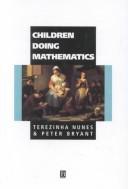
ISBN: 0631184716 0631184724 Year: 1996 Publisher: Oxford : Blackwell,
Abstract | Keywords | Export | Availability | Bookmark
 Loading...
Loading...Choose an application
- Reference Manager
- EndNote
- RefWorks (Direct export to RefWorks)
Cognition in children --- Mathematics --- Cognition chez l'enfant --- Mathématiques --- Study and teaching --- Psychological aspects --- Etude et enseignement --- Aspect psychologique --- Study and teaching (Elementary) --- Cognition in children. --- Psychological aspects. --- Mathématiques
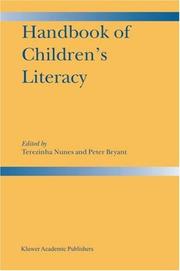
ISBN: 1402016204 9048164222 9401717311 Year: 2004 Publisher: Dordrecht Kluwer
Abstract | Keywords | Export | Availability | Bookmark
 Loading...
Loading...Choose an application
- Reference Manager
- EndNote
- RefWorks (Direct export to RefWorks)
The Handbook of Children’s Literacy provides a unique collection of papers, offering a multi-perspective, multi-disciplinary approach to understanding alphabetic literacy. The analyses at word, text and cultural levels offer an integrative view of literacy. Basic research, theoretical advances, investigations in the classroom, analyses of literacy acquisition by readers with special needs, cross-linguistic comparisons and a historical and cultural perspective will enrich the understanding of literacy of academics and practitioners alike. This is a rare opportunity to consider literacy in breadth and depth by consulting a single collection. The contributing authors are distinguished experts in their domain of investigation, teacher educators and teachers in sixteen different countries.
Language arts (Elementary) --- Literacy --- Reading disability --- Arts du langage (Primaire) --- Alphabétisation --- Lecture, Difficultés en --- Handbooks, manuals, etc. --- Guides, manuels, etc. --- #PBIB:2005.2 --- Alphabétisation --- Lecture, Difficultés en --- Reading disabilities --- Reading retardation --- Retarded readers --- Learning disabilities --- Illiteracy --- Education --- General education --- Applied linguistics. --- Education. --- Cognitive psychology. --- Applied Linguistics. --- Education, general. --- Cognitive Psychology. --- Psychology, Cognitive --- Cognitive science --- Psychology --- Children --- Education, Primitive --- Education of children --- Human resource development --- Instruction --- Pedagogy --- Schooling --- Students --- Youth --- Civilization --- Learning and scholarship --- Mental discipline --- Schools --- Teaching --- Training --- Linguistics --- Écriture --- Enfant --- Enfants --- Enseignement --- Langage --- Lecture --- Troubles de l'apprentissage --- Troubles du langage --- Analphabétisme --- Cécité --- Dyslexie --- Surdité
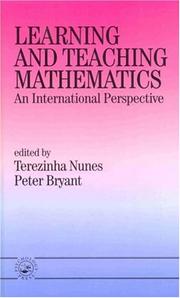
ISBN: 0863774547 9780863774546 9781315784939 9781317715986 9781317715993 9781317716006 9780863774553 Year: 1997 Publisher: Hove Psychology press
Abstract | Keywords | Export | Availability | Bookmark
 Loading...
Loading...Choose an application
- Reference Manager
- EndNote
- RefWorks (Direct export to RefWorks)
Mathematics --- Study and teaching --- -#KVHB:Rekenen --- Math --- Science --- #KVHB:Rekenen --- Mathematics - Study and teaching
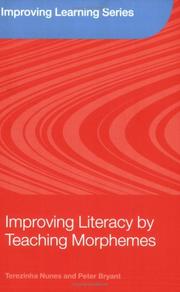
ISBN: 0415383129 0415383137 Year: 2006 Publisher: London ; New York : Routledge,
Abstract | Keywords | Export | Availability | Bookmark
 Loading...
Loading...Choose an application
- Reference Manager
- EndNote
- RefWorks (Direct export to RefWorks)
Reading. --- English language --- Literacy. --- Lecture --- Anglais (Langue) --- Alphabétisation --- Morphemics. --- Composition and exercises --- Study and teaching. --- Morphèmes --- Composition et exercices --- Etude et enseignement
Book
ISBN: 9780631234029 Year: 2009 Publisher: Chichester, West Sussex Malden, MA : Wiley-Blackwell,
Abstract | Keywords | Export | Availability | Bookmark
 Loading...
Loading...Choose an application
- Reference Manager
- EndNote
- RefWorks (Direct export to RefWorks)
English language --- Reading (Early childhood) --- Orthography and spelling --- Study and teaching (Primary)
Book
ISBN: 9061950260 9789061950264 Year: 1994 Publisher: The Hague : Bernard van Leer Foundation,
Abstract | Keywords | Export | Availability | Bookmark
 Loading...
Loading...Choose an application
- Reference Manager
- EndNote
- RefWorks (Direct export to RefWorks)
Child development. --- Child development. --- Children --- Children --- Kinderen. --- Kleinkind. --- Sociaal milieu. --- Umwelt. --- Unterprivilegierung. --- Social conditions. --- Social conditions.
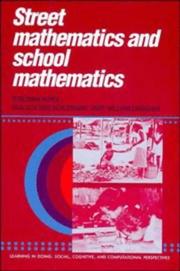
ISBN: 0521381169 Year: 1993 Publisher: Cambridge : Cambridge University Press,
Abstract | Keywords | Export | Availability | Bookmark
 Loading...
Loading...Choose an application
- Reference Manager
- EndNote
- RefWorks (Direct export to RefWorks)
Mathematics --- Educational psychology. --- Mathématiques --- Psychopédagogie --- Social aspects --- Aspect social

ISBN: 0521388139 Year: 1993 Publisher: Cambridge Cambridge University press
Abstract | Keywords | Export | Availability | Bookmark
 Loading...
Loading...Choose an application
- Reference Manager
- EndNote
- RefWorks (Direct export to RefWorks)
Book
ISBN: 331945112X 3319451138 Year: 2016 Publisher: Cham Springer Nature
Abstract | Keywords | Export | Availability | Bookmark
 Loading...
Loading...Choose an application
- Reference Manager
- EndNote
- RefWorks (Direct export to RefWorks)
This book offers a theory for the analysis of how children learn and are taught about whole numbers. Two meanings of numbers are distinguished – the analytical meaning, defined by the number system, and the representational meaning, identified by the use of numbers as conventional signs that stand for quantities. This framework makes it possible to compare different approaches to making numbers meaningful in the classroom and contrast the outcomes of these diverse aspects of teaching. The book identifies themes and trends in empirical research on the teaching and learning of whole numbers since the launch of the major journals in mathematics education research in the 1970s. It documents a shift in focus in the teaching of arithmetic from research about teaching written algorithms to teaching arithmetic in ways that result in flexible approaches to calculation. The analysis of studies on quantitative reasoning reveals classifications of problem types that are related to different cognitive demands and rates of success in both additive and multiplicative reasoning. Three different approaches to quantitative reasoning education illustrate current thinking on teaching problem solving: teaching reasoning before arithmetic, schema-based instruction, and the use of pre-designed diagrams. The book also includes a summary of contemporary approaches to the description of the knowledge of numbers and arithmetic that teachers need to be effective teachers of these aspects of mathematics in primary school. The concluding section includes a brief summary of the major themes addressed and the challenges for the future. The new theoretical framework presented offers researchers in mathematics education novel insights into the differences between empirical studies in this domain. At the same time the description of the two meanings of numbers helps teachers distinguish between the different aims of teaching about numbers supported by diverse methods used in primary school. The framework is a valuable tool for comparing the different methods and identifying the various assumptions about teaching and learning.
Education. --- Mathematics --- Teaching. --- Mathematics Education. --- Learning & Instruction. --- Teaching and Teacher Education. --- Study and teaching. --- Didactics --- Instruction --- Pedagogy --- School teaching --- Schoolteaching --- Children --- Education, Primitive --- Education of children --- Human resource development --- Schooling --- Students --- Youth --- Education --- Instructional systems --- Pedagogical content knowledge --- Training --- Civilization --- Learning and scholarship --- Mental discipline --- Schools --- Teaching --- Mathematics. --- Math --- Science --- Mathematics—Study and teaching . --- Learning. --- Instruction. --- Learning process --- Comprehension --- Mathematics Education --- Learning and Instruction
| Listing 1 - 10 of 11 | << page >> |
Sort by
|

 Search
Search Feedback
Feedback About UniCat
About UniCat  Help
Help News
News